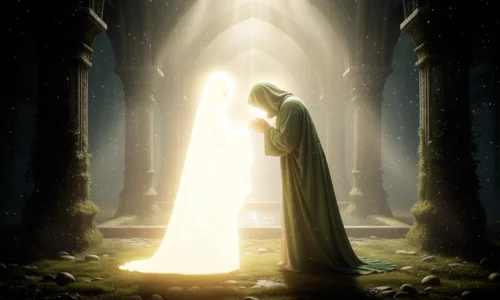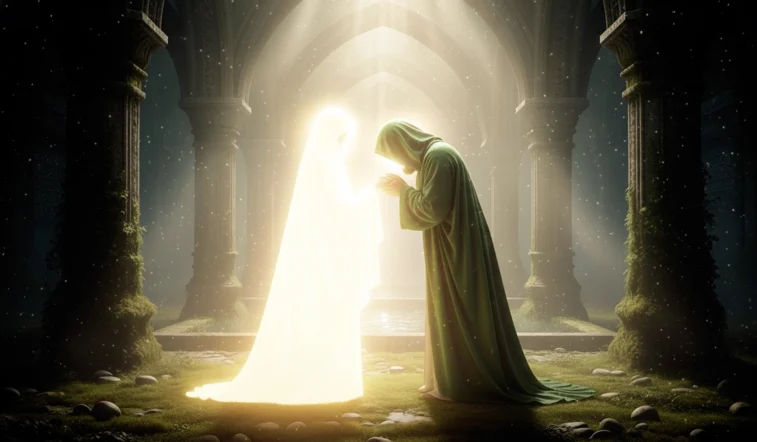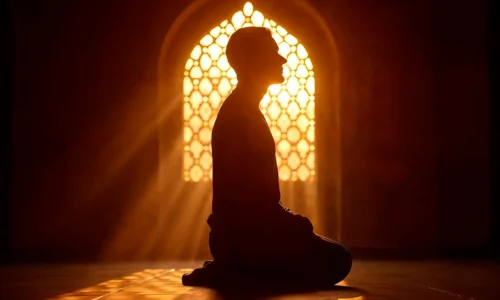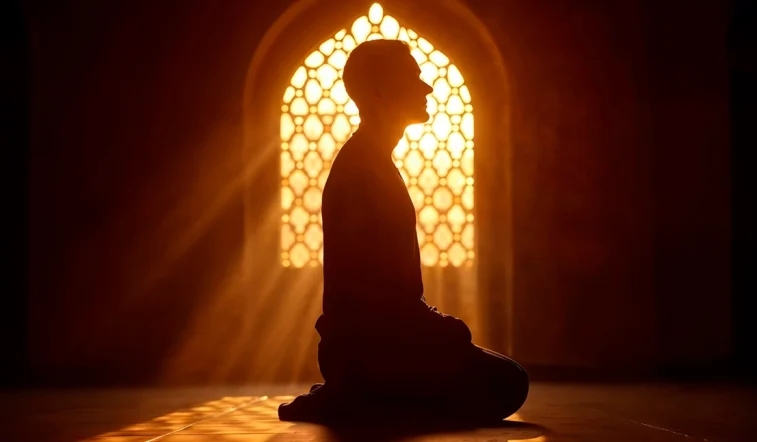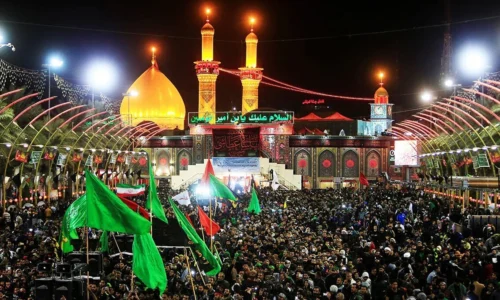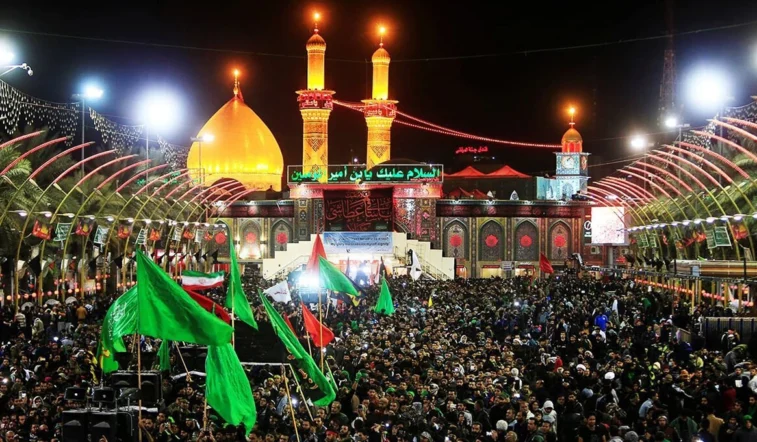In a world overflowing with violence, deceit, corruption, and oppression, the question arises in many hearts:
Why does evil continue to thrive?
Why do tyrants walk freely while truth-tellers are silenced? Why is injustice so widespread, and why does it feel like God is silent?
For those who believe in the 12th Imam—Imam Mahdi (AS)—the answer begins with one powerful truth:
We are living in the era of his occultation.
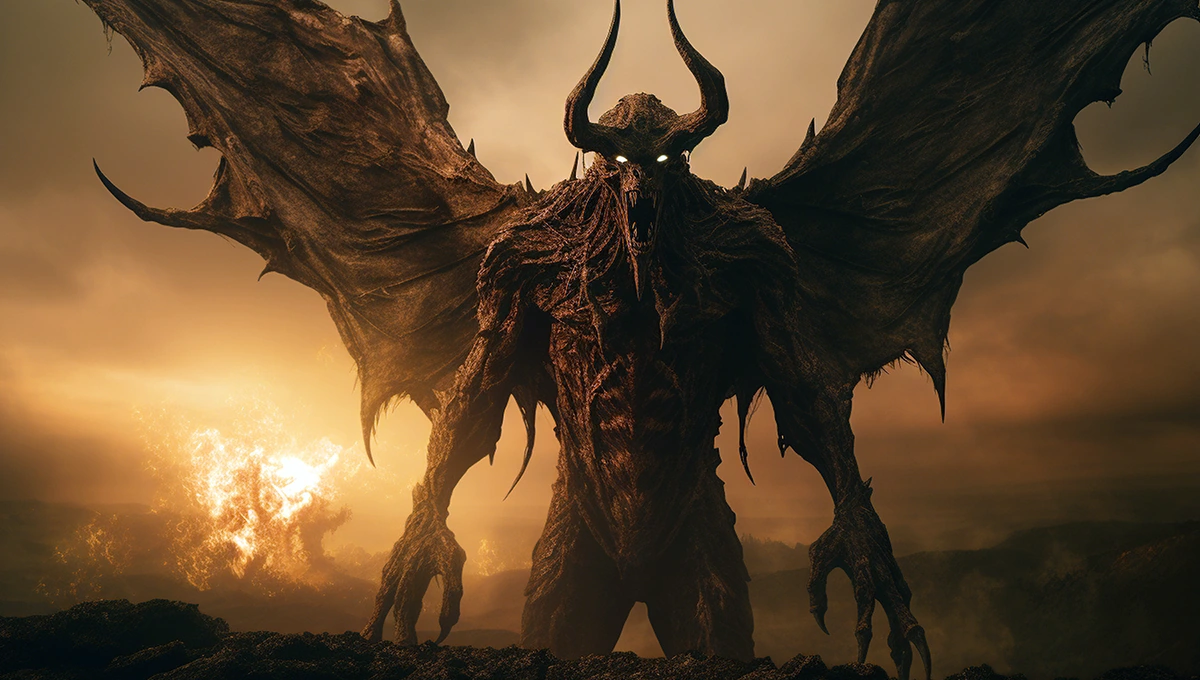
His physical absence from the public eye marks a spiritual test for humanity. It is a period foretold in Islamic traditions, where truth would be hidden, the believers would be tested, and falsehood would dominate much of the Earth—not because the Imam is absent, but because the world is being watched to see who will stand for justice without seeing him.
But still, we must ask:
Why is evil so strong in this time? And what does it mean for us?
The Shield That Is Missing
Throughout history, divine leaders—prophets and Imams—acted as living shields against injustice. Their presence alone kept corruption in check. Their words cut through lies. Their actions held oppressors accountable.
When such a leader is visible, the people have:
- A source of truth
- A visible light to follow
- A force that confronts and exposes evil
In the absence of that visible leadership, falsehood grows bold. The liar becomes louder. The tyrant becomes more confident. The manipulators of religion gain platforms. Morality is redefined.
This is not because evil is strong.
It is because the light that once exposed it is now hidden.
The Prophecies of This Time
Islamic narrations from both Sunni and Shia sources foretell the characteristics of the time before the reappearance of the Mahdi (AS):
- The Earth will be filled with injustice and tyranny
- Truth will become rare
- The sincere will be mocked or isolated
- Leaders will be corrupt and dishonest
- Religion will be practiced in name, but not in spirit
This isn’t a prediction of failure—it’s a map of what happens when divine leadership is removed from plain sight.
Why Does Allah Allow This?
A painful but essential question:
If Allah is just, why does He allow evil to thrive during this time?
The answer lies in two divine purposes:
1. A Test of Human Free Will
Allah does not force guidance. He offers it, through His prophets and Imams. But in the time of occultation, He leaves humanity to choose—to reveal what they will do in the absence of supervision.
“Indeed, We have shown him the way, be he grateful or ungrateful.”
~Qur’an 76:3
This is a time where people’s true nature surfaces—who will sell their souls for power, and who will cling to truth when it’s costly.
2. Preparing the World for the Imam’s Return
Just as dawn is most meaningful after the darkest night, the Mahdi’s return will come when the world has seen the depth of falsehood and is ready to long for truth. The dominance of evil is not the end—it is the final stage before divine justice rises.
How Evil Operates in This Era
The absence of the Imam does not mean the absence of God’s knowledge or concern. But it does give falsehood space to operate—and Satan uses that space strategically. Here’s how evil thrives today:
1. Disguising Itself as Good
Tyranny now comes in the name of democracy. Greed in the name of growth. Oppression in the name of security. Religion is used to justify war. Spirituality is sold as entertainment.
Falsehood wears the mask of virtue—and most people do not see through it.
2. Control of Media and Minds
Without the Imam to expose false narratives, media becomes the most powerful tool of deception. Evil spreads not just through violence, but through ideological war—changing what people believe is right or wrong.
3. Dividing the Believers
Evil grows stronger by dividing those who could stop it. Sectarianism, racism, nationalism—even petty ego—keep believers fighting each other instead of uniting in justice. This division delays the return of the Imam.
What Can We Do in the Face of Evil?
Though we live in the time of the Imam’s occultation, we are not powerless. In fact, every sincere act of resistance against evil is a brick in the foundation of his return.
1. Live by the Values of the Imam
Even if we don’t see him, we know what he stands for: truth, mercy, courage, justice. Every time we embody these in our homes, communities, and voices—we are standing with him.
2. Expose Falsehood Gently but Clearly
Don’t remain silent when lies are told. Don’t amplify injustice by inaction. The Mahdi will not rise for a passive people—he will rise for a people who resisted falsehood before his arrival.
3. Unite the Sincere
Help end division. Whether between sects, ethnic groups, or even within families. The Imam’s mission is universal, and he will not return to a fragmented Ummah.
4. Pray with Purpose
Don’t just ask for his return out of desperation. Ask with readiness. Say to yourself: “If he came today, would I be one of his soldiers—or just another spectator?”
Final Thought: Evil’s Time Is Temporary
Evil thrives now not because it is stronger—but because its time is limited. Like a fire that burns brightest before going out, falsehood is loud because it knows what’s coming.
The Mahdi will return. And when he does, no lie will survive, and no tyrant will remain. But until then, the war between truth and falsehood continues within us—in our choices, in our actions, in our silence or our speech.
Let us be among those who lived with purpose in the age of hidden light, and not those who woke up only after the sun had risen.
